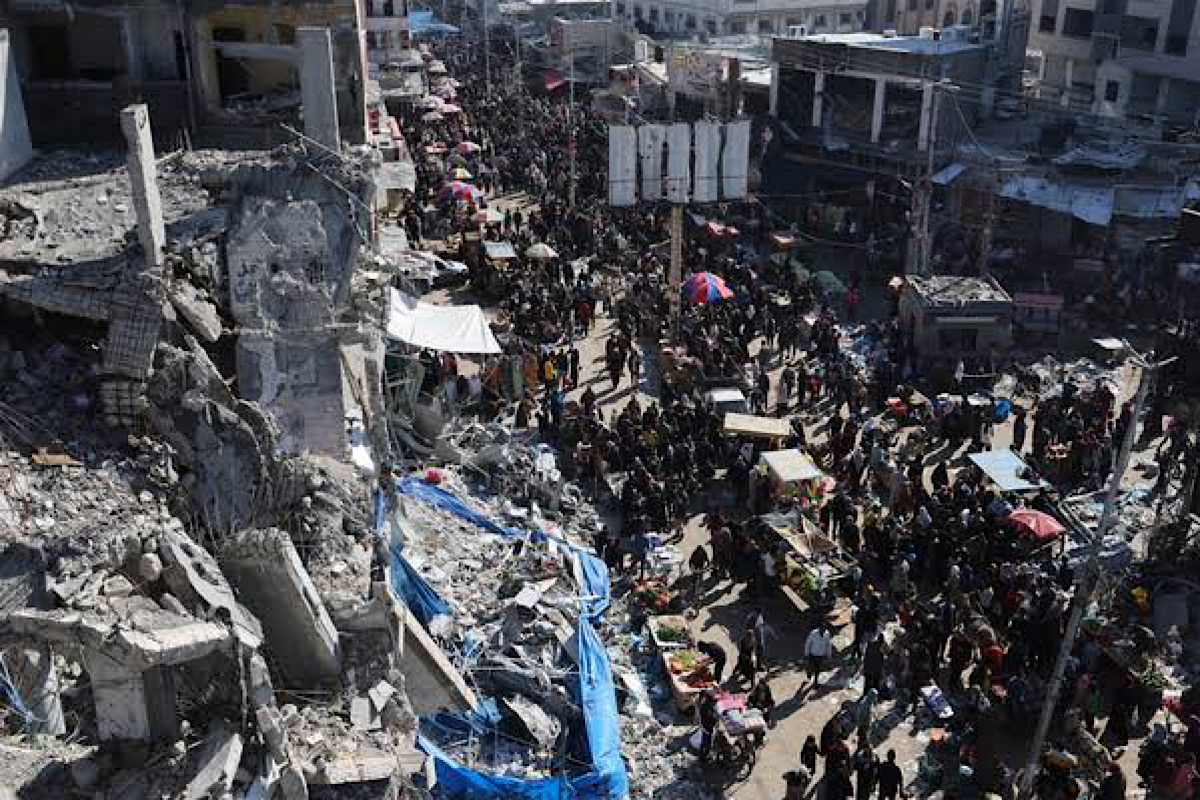The latest proposal by US President Donald Trump to take control of Gaza and resettle its Palestinian population has triggered alarm across the Arab world. While the initiative has been widely condemned, Arab states are struggling to formulate a unified response. The plan has reopened historical wounds, drawing comparisons to the 1948 Nakba, and exposed deep divisions among regional players regarding funding and governance.
The upcoming Arab League summit in Cairo on March 4 will be a critical test of whether Arab leaders can craft a credible alternative or if strategic constraints will limit their ability to push back effectively. Mr Trump’s proposal, which envisions the forced displacement of Gazans and their resettlement in Egypt and Jordan, is more than just an impractical solution ~ it is a geopolitical time bomb. The idea of “cleansing” Gaza of its Palestinian population echoes long-standing Israeli right-wing narratives that seek to redefine Jordan as the alternative Palestinian homeland.
Advertisement
Such a move would not only destroy the Palestinian national identity but also create new waves of instability across the region. Jordan and Egypt are among the most affected, given their proximity to Gaza and existing Palestinian populations. Both nations have legitimate ~ Egypt fears Hamas infiltration, while Jordan sees any mass expulsion as a direct threat to its own stability. Yet, their heavy reliance on US aid makes it difficult for them to outright reject Washington’s proposals. Gulf states, on the other hand, may have financial leverage but are wary of investing in another cycle of destruction without assurances that it will not repeat itself. The Saudi-hosted meeting on Friday signals an effort to consolidate an Arab response, but deep disagreements remain.
While Egypt is attempting to rally support for a $20 billion reconstruction fund, there is no clarity on who will ultimately govern Gaza. The Palestinian Authority (PA) is proposing a deputy prime minister model, while Egypt suggests a non-partisan committee ~ yet both ideas face opposition. Israel has already ruled out any role for Hamas, while the PA lacks credibility among many Palestinians. With the Arab League summit approaching, the key question is whether Arab states can agree on an alternative that is both politically feasible and financially viable. Any solution that does not address Gaza’s long-term governance and security challenges risks being dismissed as yet another diplomatic exercise with no real impact.
For decades, Arab nations have expressed solidarity with the Palestinian cause, yet tangible action has often been lacking. Mr Trump’s plan forces the region to make a decisive choice: either take collective responsibility for shaping Gaza’s future or allow external powers to dictate its fate. The coming weeks will determine whether Arab states can rise to the occasion or if divisions will once again weaken their ability to protect Palestinian rights.











